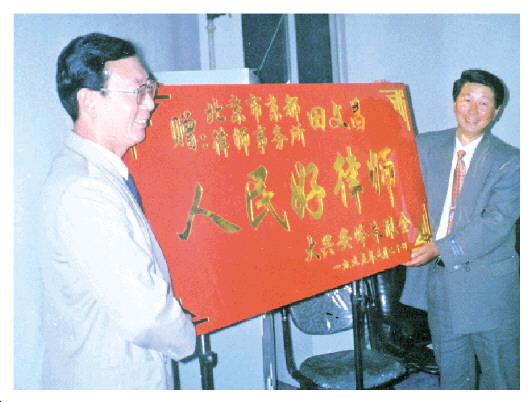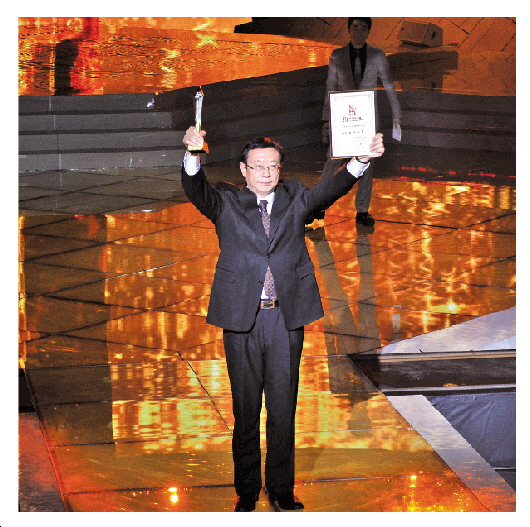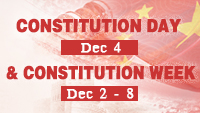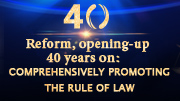First person from professor to lawyer:Tian Wenchang and reform and opening-up
 |
|
The parties involved donate a plaque with the words “People’s good lawyer” to Tian in 1995. [Photo/ Legal Daily] |
 |
|
In 2013, Tian is named one of that year’s ten legal figures by CCTV. [Photo/ Legal Daily] |
As one of the first person in China to change his career from professor to lawyer after China's reform and opening-up policy began in 1978, Tian Wenchang handled several influential cases related to the economic and social changes due to that policy in the 1990s.
After the reform and opening-up, some colleges in China began to enroll postgraduate students. Tian, having lost the chance to register for the college entrance examination in the early 1980s, took the postgraduate examination and thus became attached to law.
After graduation from Northwest University of Political Science and Law in criminal law in 1983, he came to teach at the China University of Political Science and Law. In 1995, he changed his position from professor to lawyer who is considered as the first Chinese to make such kind of career switches in legal field.
In Tian’s opinion, the reason why four cases handled by him in 1992 and 1993 all got fruitful results is that they were closely related to legal progress after the reform and opening-up. “During that time, the concept of rule of law was open and progressive and was growing with a steady pace. In spite of a fragile foundation, the concept of rule of law and the environment for case handling were improving rapidly”, he said.
Yu Zuomin, in the early days of reform and opening-up became renowned for turning a poverty-stricken village into the richest village of the day. But after that, he went bad and even incited his followers to beat other people to death. In April 1990, a local plant manager’s father was beaten to death and his son, Liu Jinhui, came to Tian to redress the injustice.
Yu dispatched more than 40 cars and 100 people to catch Liu, threatening that “he wanted him dead or alive”. Liu filed a law suit against Yu in Beijing.
“Nobody would dare accept the case and I was at that time hesitant to do it because Yu was a typical and well-known character representing the reform and opening-up. He sent out materials claiming that I sued him to deny the policy of reform and opening-up which was considered a big deal, like pinning political labels on people. I also worried about the safety of my family,” Tian said.
Tian’s acting for Liu finally led to the result that Yu was sentenced to a fixed-term of imprisonment for twenty years.
From the 1990s, the practice of law was developing at a steady pace. Especially after the revision of criminal procedure law in 1996, there was an increasingly broader stage for lawyers.
And as that stage expanded criminal defense lawyers when defending corrupt high-level officials were always challenged by people asking “Why defend the bad guys?”
In a case symbolic of that development Tian defended Liu Yong, a gang leader. It aroused heated discussion of questions such as “Should Tian defend a gang leader?”and “Is it a mandatory responsibility of a lawyer to defend the legal rights of a criminal?”
Faced with such challenges, Tian responded “If I don’t do it this way, I am not qualified to be a lawyer”. Two years later, in the revised Lawyers Law, protecting the rights of the parties involved is prioritized as the lawyer’s responsibility.
Legal impartiality is also reflected in the procedure in that a person who has really committed a felony, after receiving lawyer’s full legal defense is still be sentenced to heavy punishment., Tian said.



